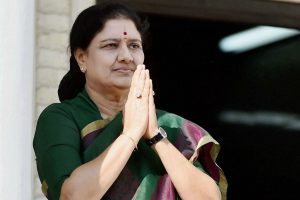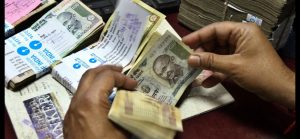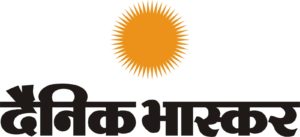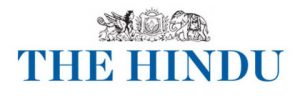
08-02-2017 (Important News Clippings)
To Download Click Here
To fill the vacuum after scrapping FIPB
The government has done well to announce the decision to abolish the Foreign Investment Promotion Board (FIPB) in 2017-18. More than 90% of the foreign direct investment, in any case, comes through the automatic route and sectoral regulation has also become far more robust, obviating the need for the board that was set up in early 1990s. Advanced countries, by and large, welcome all foreign investment, but have institutional mechanisms to block any foreign investment proposal that hurts national interest and security. India must also have such institutional safeguards. The RBI is best placed to play the nodal agency for review; after all, all foreign investment into the country has to comply with its foreign exchange reporting requirements.
The government should enact a law to give the RBI powers that go beyond collection of information to refer proposals for vetting for possible security implications to relevant ministries of the Union government. The executive government can then decide on whether to prohibit or suspend a transaction. That decision and the factors that guided the decision must be placed before a committee of the legislature, for the sake of transparency.
Globally, there are varying institutional arrangements, backed by law, to determine if a foreign investment proposal threatens national security. The Committee on Foreign Investment in the US, for example, is required to give Congress confidential briefings on request. The President can act in rare cases. Whereas the Australian law empowers the Treasurer to block foreign investment proposals. India needs not just a robust arrangement but also stringent timelines to conclude an RBI-initiated review and report to Parliament. Most FDI proposals should sail through, anyhow.
Date:08-02-17
When Inner-Party Flaws fail the people

But if their disaffection falls short of active revolt, it can impinge on Sasikala’s chief ministership only four years later, at the next assembly elections, four years away. By that time, she can hope to have played the game of patronage and penalties to dissolve opposition from within. This storyline hinges on the formal structure and procedure in place for choosing the chief minister and for the chief minister to stay in office. But politics does not go by form alone. If the MLAs sense that their survival in politics, leave alone re-election, is at stake, they would be more than happy to have a change of heart. That calls for the AIADMK party to come alive as an organism of functional democracy and review its organisational functioning.
Can someone be elevated as the party’s new general secretary, a position held, first, by founder M G Ramachandran and then, by Jayalalithaa, without consulting the wishes and preferences of the party rank and file? Sasikala’s rise from the penumbra of Tamil Nadu’s politics to the shining centre of its galaxy illuminates the link between parties’ internal democracy or its deficit and the quality of the polity in general.
प्रधानमंत्री ने जवाब तो दिया पर विपक्ष से संवाद नहीं साधा
Date:08-02-17
धार्मिक संस्थाओं, उत्सव समितियों ने 50 हजार से ज्यादा चंदा लिया तो लगेगा टैक्स
आयकर अधिनियम में हुए बदलाव, छूट के लिए कराना होगा पंजीयन
मंदिर, ट्रस्ट और उत्सव समितियों के माध्यम से अब मनीलॉन्ड्रिंग नहीं हो सकेगी। सरकार ने आम बजट में आयकर अधिनियम में कुछ फेरबदल करते हुए धार्मिक संस्थाओं पर 50 हजार से अधिक का डोनेशन लेने पर रोक लगा दी है। इससे ज्यादा डोनेशन लेने वालीं संस्थाओं को बिना पंजीकरण कराए कोई छूट नहीं मिलेगी। 50 हजार से ज्यादा के डोनेशन को संस्था संचालक की व्यक्तिगत आय माना जाएगा। कथा समेत तमाम बड़े धार्मिक आयोजन करने वाले भी इस नियम के दायरे में आ गए हैं।उल्लेखनीय है कि नोटबंदी के बाद धार्मिक संस्थाओं के माध्यम से बड़े पैमाने पर कालेधन को सफेद करने के मामले सामने आए थे। आयकर विभाग के सूत्र बताते हैं कि देश में 95 फीसदी से अधिक मंदिर,ट्रस्ट और दुर्गा और गणेश पांडालों के पास आयकर विभाग का पंजीयन नहीं है।
आम बजट में पेश किए गए नए प्रावधान यह बताते हैं कि मंदिर,ट्रस्ट और संस्थाओं को मिलने वाले डोनेशन पर व्यक्ति को मिलने वाले उपहार के नियम लागू होंगे। हालांकि इन सभी को आयकर अधिनियम की धारा 12 एए के तहत पंजीयन का विकल्प दिया गया है। पंजीयन न लेने वाली ट्रस्ट और संस्थाएं अगर 50 हजार से अधिक का डोनेशन लेंगी तो उन्हें आयकर अधिनियम के तहत मिलने वाली सारी रियायतें स्वत: खत्म हो जाएंगी।
रजिस्ट्रेशन ले लिया तो कितना टैक्स लगेगा?
-12 एए के तहत रजिस्टर्ड फर्म को केवल 10 फीसदी टैक्स देना होगा।
हमारा धार्मिक ट्रस्ट है। 3 लाख रुपए बैंक खाते में हैं। पैनकार्ड ले रखा है। क्या करना होगा?
-आयकर विभाग से 12एए रजिस्ट्रेशन के लिए फार्म लेकर कमिश्नर के नाम जमा करना पड़ेगा। विभाग रजिस्ट्रेशन की पात्रता की पड़ताल करेगा। इसके बाद रजिस्टेशन नंबर मिलेगा। 1 अप्रैल 2017 तक रजिस्ट्रेशन लेना अनिवार्य होगा।
रजिस्ट्रेशन नहीं लिया तो क्या होगा?
-3 लाख रुपए जमा हैं। 50 हजार तक छूट है। शेष 2.50 लाख पर टैक्स देना होगा। ट्रस्ट अगर 1 अप्रैल 2017 के बाद कोई गुप्त दान लेता है तो उस पर मैक्सिमम मार्जिनल रेट जो 33.99% की दर से टैक्स लगेगा।
गलत परंपरा
वर्ष 2017-18 के आम बजट को देखते हुए यह कहा जा सकता है कि आने वाले वित्त वर्ष में सरकार को अनूठी दिक्कत का सामना करना पड़ सकता है। इसके लिए केंद्र सरकार द्वारा लगभग हर बजट में नए उपकरों और अधिभारों का अधिरोपण भी एक वजह है। आंकड़े बताते हैं कि केंद्र सरकार के राजस्व का लगभग चौथाई हिस्सा अब इसी श्रेणी से प्राप्त होता है। यह सही परंपरा नहीं है और बीते कुछ वर्षों से यह लगातार मजबूत होती जा रही है। खासतौर पर पिछले दो सालों के दौरान केंद्र सरकार के कुल राजस्व में उपकरों और अधिभार की हिस्सेदारी बहुत अधिक बढ़ गई है। बहरहाल यह बढ़ती निर्भरता आगे चलकर एक समस्या की वजह बन सकती है क्योंकि यह ऐसे समय पर हो रहा है जब देश वस्तु एवं सेवा कर व्यवस्था की ओर बढ़ रहा है। यह व्यवस्था आगामी वित्त वर्ष से लागू हो सकती है। इनमें से कई उपकर और अधिभार जीएसटी में समाहित हो जाएंगे। ऐसे में यह एकदम स्पष्ट नहीं है कि उन योजनाओं और कार्यक्रमों की फंडिंग का क्या होगा जो इससे जुड़ी हुई हैं। उदाहरण के लिए सरकार ने स्वच्छ भारत उपकर से 13,300 करोड़ रुपये के संग्रह की बात कही है जबकि इसके पहले साल यानी वर्ष 2015-16 में इससे 3,926 करोड़ रुपये की राशि आई थी। इसी प्रकार कृषि कल्याण उपकर से हासिल होने वाले राजस्व की राशि भी वर्ष 2016-17 के 5,000 करोड़ रुपये से बढ़कर 8,800 करोड़ रुपये होने का अनुमान है। इसमें से पूर्ववर्ती उपकर का इस्तेमाल स्वच्छ भारत योजना में किया जाएगा जिसके लिए सरकार ने 16,248 करोड़ रुपये के व्यय का बजट निर्धारित किया है जबकि बाद वाले उपकर की मदद से ग्रामीण विकास योजनाएं चलाने की बात कही गई है। प्रश्न यह है कि जीएसटी के लागू होने के बाद इन योजनाओं की फंडिंग का क्या होगा? निश्चित तौर पर ऐसा भी नहीं है कि हर उपकर इससे प्रभावित ही होगा। कुछ उपकर मसलन तेल एवं तेल उत्पादों पर लगने वाले उपकर तथा स्वच्छ पर्यावरण वाले उपकर जीएसटी में शामिल नहीं किए जाएंगे क्योंकि ये दायरे से बाहर हैं। परंतु बाकी के अधिकांश प्रभावित होंगे। लब्बोलुआब यह है कि केंद्र सरकार को जीएसटी के प्रवर्तन के बाद अतिरिक्त राजकोषीय बोझ का सामना करना पड़ सकता है। पीछे पलट कर देखने पर अहसास होगा कि यह समस्या पूरी तरह खुद खड़ी की गई है।
Date:08-02-17
न्यूनतम शासन के लिए जरूरी है केंद्रीय कर्मियों की तादाद में कमी
नकदी पर नजर

इसी अवसर पर यानी रविवार को राजस्व सचिव हसमुख अढिया ने कहा कि कालेधन के निर्माण का एक अहम कारण बड़ी मात्रा में नकदी का प्रचलन है। इसे हतोत्साहित करने के लिए ही सरकार ने तीन लाख रुपए से अधिक की रकम के एकमुश्त लेन-देन पर सौ रुपए जुर्माना लगाने की तैयारी की है। यानी अगर कोई व्यक्ति किसी को चार लाख रुपए नकद में भुगतान करेगा तो राशि को स्वीकार करने वाले को चार लाख का जुर्माना भरना पड़ेगा। यह व्यवस्था किसी सामान आदि की खरीदारी पर भी लागू होगी। विशेषज्ञों का मानना है कि नोटबंदी के बाद बैंक खातों में बड़ी मात्रा में काला धन भी जमा हुआ है। यह आशंका है कि जमाकर्ता ज्यादा से ज्यादा नकद निकल कर उसे दोबारा कालेधन के रूप में जमा करने की कोशिश करेंगे। ऐसा लगता है कि सरकार का ताजा कदम इस तरह की नकदी को प्रचलन में आने से रोकना है। राजस्व सचिव ने कहा भी है कि सरकार सभी बड़े नकद लेन-देन को अपनी नजर में रखना और संदिग्ध लेन-देन पर रोक लगाना चाहती है।
दरअसल, वित्तमंत्री अरुण जेटली ने 2017-18 के बजट में आय कर कानून में धारा-269 एसटी जोड़ने का प्रावधान किया है, जिसमें कहा गया है कि कोई भी व्यक्ति एक दिन में, एक व्यक्ति से एकल लेन-देन या किसी एक मामले या मौके पर तीन लाख से अधिक की नकदी स्वीकार नहीं करेगा। यह अंकुश सरकारी बैंक, डाकघर बचत आदि पर लागू नहीं होगा। इस बार के आम बजट ने नकद राजनीतिक चंदे की सीमा बीस हजार से घटा कर दो हजार करने का प्रावधान पेश किया है। लेकिन उस प्रस्ताव की तरह ताजा फैसले में भी कई छेद दिख रहे हैं और कुछ बातें फिलहाल स्पष्ट नहीं हैं। मसलन, तीन लाख से अधिक की जो राशि जब्त की जाएगी, क्या उसी को जुर्माना मान लिया जाएगा या जुर्माने की राशि अतिरिक्त होगी। प्रावधान में चौबीस घंटे की मियाद रखी गई है। यानी यह रास्ता खुला हुआ है कि कोई व्यक्ति दूसरे चौबीस घंटे में फिर तीन लाख का लेन-देन कर सकता है या एक ही व्यक्ति को एक ही मामले में एक से अधिक लोग नकद भुगतान कर सकते हैं। इन छिद्रों के होते हुए कहना मुश्किल है कि ताजा फैसला कालेधन का रास्ता बंद करने में कितना कारगर हो पाएगा।
आधार मोबाइल नंबर
सर्वोच्च न्यायालय ने देश में काम कर रहे सभी मोबाइल नंबरों को एक साल के अंदर आधार नंबर से जोड़ने का निर्देश दिया है। अदालत ने सरकार से कहा है कि यह काम किसी भी हालत में एक साल के अंदर हो जाना चाहिए। अदालत का मानना है कि देश में सौ करोड़ से ज्यादा मोबाइल धारक हैं और इन सबको आधार से जोड़ने के लिए एक ऐसी व्यवस्था जरूरी है कि प्रीपेड उपभोक्ता भी अगली बार रिचार्ज कराने से पहले एक फॉर्म भरकर अपने ब्योरे जरूर दें। एक ऐसी नीति भी बनाने को कहा है, जो सख्त नियम-कानून के साथ सिम कार्ड के नाजायज इस्तेमाल को रोकने में कारगर साबित हो।
कोर्ट का मानना है कि एक-एक मोबाइल नंबर का वेरीफिकेशन इसलिए भी जरूरी हो गया है कि अब यह सिर्फ बात करने का नहीं, बल्कि बैंकिंग का जरिया भी हो चुका है। मोबाइल धारकों का वेरीफिकेशन आधार नंबर से जोड़ने की बाध्यता की मांग टेलीकॉम रेगुलेटरी अथॉरिटी यानी ट्राई ने की थी। ट्राई का मानना था कि आधार आधारित वेरीफिकेशन बेहतर होगा, क्योंकि यह ज्यादा तार्किक है और किसी व्यक्ति की बायोमीट्रिक डिटेल पर आधारित है। ऐसा हो जाने से किसी भी तरह की गड़बड़ी की गुंजाइश कम हो जाएगी। मोबाइल धारकों के वेरीफिकेशन की वर्तमान व्यवस्था को बहुत तार्किक तो नहीं ही कहा जा सकता। तमाम उदाहरण हैं, जब मामूली और कथित सत्यापन के आधार पर सिम जारी हुए और बाद में वेरीफिकेशन के नाम पर उपभोक्ता से रटे-रटाए जवाब दिलवा दिए गए।
अदालत का आदेश और ट्राई की मांग अभी दोनों बहुत स्पष्ट नहीं है, लेकिन यह एक बहस तो है ही कि एक से ज्यादा सिम इस्तेमाल करने वाले के लिए भी क्या कोई नई गाइडलाइन होंगी या कि इसे कुछ नंबरों तक ही सीमित रखना होगा? यह भी कि क्या किसी एक नाम पर जारी सिम उसका कोई रिश्तेदार या घर का दूसरा सदस्य इस्तेमाल करता है या करना चाहता है, तो उसके लिए क्या व्यवस्था होगी? दरअसल, मांग तो काफी पहले आ गई थी, लेकिन एक बहस भी साथ ही शुरू हो गई थी कि आधार आधारित वेरीफिकेशन को बाध्यकारी कैसे बनाया जा सकता? इसमें तमाम दिक्कतें गिनाई जा रही थीं। ऐसे देश में, जहां कई बार जिसके नाम से सिम जारी हो जाए, उसी को पता न चले, वहां सख्त नियम-कानून जरूरी थे। शायद यह अकेला ऐसा तरीका हो, जो मोबाइल फोन के बेजा इस्तेमाल पर कारगर रोक लगाने में सफल हो। अब यह नई सूचना नहीं रह गई है कि पुलिस के पास ऐसे हजारों, बल्कि लाखों मामले लंबित हैं, जहां फर्जी नाम-पते पर जारी हुए सिम के कारण अभियुक्त तक पहुंचना खासा मुश्किल हो गया। लेकिन क्या नई व्यवस्था को भी अंतिम और फुलप्रूफ मान लिया जाए? ऐसे देश में, जहां ब्योरा बदलकर नया ड्राइविंग लाइसेंस या अन्य कोई वांछित चीज हासिल की जा सकती हो, वहां ऐसे प्रयोग कितने और कब तक सार्थक हो पाएंगे, इस पर संदेह उठना गलत न होगा।
एक बहस सिंगल आइडेंटिफिकेशन नंबर को लेकर भी लंबे समय से चली आ रही है। आधार कार्ड, पासपोर्ट, पैन या एनपीआर (नेशनल पॉपुलेशन नंबर), ड्राइविंग लाइसेंस या वोटर आईकार्ड के बीच फंसे भारतीय मानस के इस पहचान के संकट पर भी अब कोई स्थायी समाधान खोजना चाहिए। क्या यह हो सकता है कि आधार नंबर को ही ऐसी मान्यता दे दी जाए कि इसे ही भारतीय नागरिक होने का प्रमाणपत्र मान लिया जाए? एक तथ्य यह भी है कि आधार नंबर बाध्यकारी मान लिए जाने के बावजूद इसे जारी करने की प्रक्रिया आज भी इतनी धीमी है कि मकसद पर संदेह होने लगता है।
Rewiring the WTO
Growing disenchantment with the existing model of globalisation is also a historic opportunityto frame new rules granting equal opportunities to all in the global marketplace

The TPP found itself in this position after the United States orchestrated the move to make the WTO virtually irrelevant during the 10th Ministerial Conference of the organisation, in Nairobi in 2015. The conference ended without a decision on the most important area of work of WTO members — the Doha Round negotiations. These negotiations were mandated by the Doha ministerial conference in 2001 to review extant trade rules in order to make the WTO more responsive to the needs of the majority of its membership — the developing countries. With the Nairobi ministerial failing to decide on the future of the Doha negotiations, the WTO’s relevance has been questioned since the organisation does not have a work programme.
The developing world has largely been questioning the relevance of the WTO for some years now, when the richer nations gained the upper hand in setting the priorities for the organisation. As a result, the efforts of the developing countries to amend several important agreements and to make them more responsive to their development needs have been seriously undermined. Similarly, issues of critical concern to the least developed countries, especially their inability to increase their presence in the global markets, have also been put on the backburner.
Silence on food stockholding
The skewed rules in the areas of agriculture and intellectual property rights have been flagged by the developing countries as their particular areas of concern. In agriculture, WTO rules have been loaded in favour of the developed countries, while the interests of small farmers have almost been completely ignored. India flagged the important issue of food security and argued that the sovereign states must have the right to decide the manner in which the poor should be provided subsidised food. This issue arose after questions were raised as to whether public stockholding of food, which is at the heart of India’s Public Distribution System (PDS), meets the WTO disciplines on agricultural subsidies. After India countered the viewpoints of the countries questioning its PDS, an understanding was reached where even if India breached agricultural subsidies’ disciplines to meet its food security needs, no penal action would be taken against it through what is commonly called a “peace clause”. But India’s insistence that there should be a permanent solution to the problem of public stockholding for food security purposes has been met with deafening silence.
While the developing country issues have not seen any progress, Mr. Azevêdo’s predecessor, Pascal Lamy, had lent support to the fast tracking of negotiations for an agreement on trade facilitation. This area covers all the measures that countries need to take in order to reduce transactions costs. Trade facilitation was not exactly an area that excited the developing countries for their shares in global trade are at very low levels. Moreover, by accepting the commitments under the agreement, they were required to undertake changes in their customs procedures and facilities, which seemed a daunting task for many of the poorer countries. The critical element was the availability of financing facilities for undertaking the modifications. However, despite their initial opposition, the developing countries eventually accepted the Agreement on Trade Facilitation at the end of the Bali Ministerial Conference in 2013.
Four years later, e-commerce
In the run-up to the 11th Ministerial Conference to be held in Buenos Aires in December 2017, ground is being prepared by the major economies for another exercise at “cherry picking”. The issues that have been identified for inclusion in the WTO are electronic commerce and investment. Their inclusion has been supported by the International Chamber of Commerce (ICC) and the B-20 (Business 20, representing the business groups of G-20 countries).
The ICC and B-20 tabled a proposal in September 2016 for the adoption of a “WTO package” on e-commerce. Interestingly, this proposal speaks of promoting micro, small and medium enterprises (MSMEs) through the better adoption of e-commerce. The proposal argues that an effective e-commerce environment would level the playing field between large and small businesses, thus enabling the latter to overcome the hurdles in accessing markets. The ICC-B-20 have proposed that the “package” should also provide capacity building resources to the developing economies, “including targeted assistance to ensure that MSMEs can get online and expand their business through e-commerce”. This approach is similar to the Trade Facilitation Agreement Facility, the window for supporting developing and least-developed countries to implement the Trade Facilitation Agreement. However, the biggest challenge for the WTO is to garner financial resources, since it does not have a financing arm.
Divisive issue of investment
The issue of including investment in the WTO has been a deeply divisive, almost right since the inception of the organisation. While previous attempts to include an investment agreement have been met with much resistance from the developing countries, the latest bid comes at a time when the investor-friendly bilateral investment treaties (BITs) are under the scanner. The focus is on the investor state dispute settlement process, using which investors can sue their host states in private international panels. India has unilaterally revoked a majority of the 73 BITs that it was a party to and has adopted a new model BIT that would be the basis of its future BITs. The new model BIT vastly truncated the powers of the foreign investor and their right to initiate disputes.
It is quite clear that the inclusion of e-commerce and investment in the WTO would further drive the wedge between the rich and the poor nations. The growing disenchantment with the existing model of globalisation has provided a historic opportunity to frame new rules that give equal opportunities to all countries and their citizens in the global marketplace. Can Mr. Azevêdo be the harbinger of this new regime?
Biswajit Dhar is Professor, Centre for Economic Studies and Planning, School of Social Sciences, Jawaharlal Nehru University, New Delhi.




